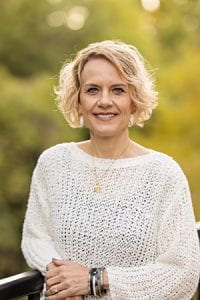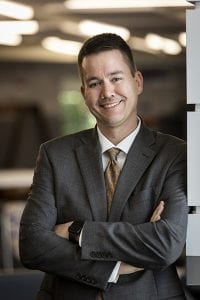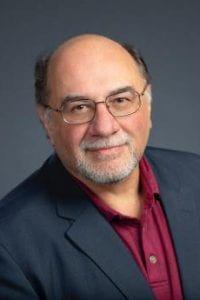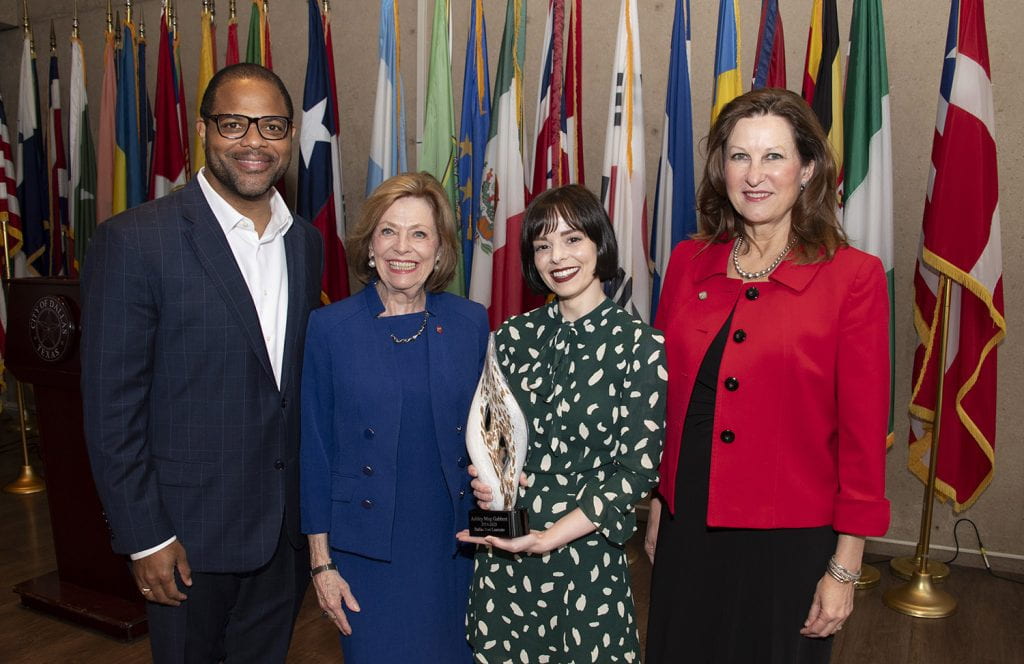Three Simmons faculty members were recognized at the SMU Provost’s 2024 Faculty Career Achievement Awards reception on April 15 at the Umphrey Lee Center.
 Greta Davis, Ph.D., Chair of the Counseling Department, Michael Harris, Ed.D., Chair of Education Policy & Leadership and Anthony Petrosino, Ph.D., Associate Dean for Research & Outreach, were honored as faculty with state and national recognition.
Greta Davis, Ph.D., Chair of the Counseling Department, Michael Harris, Ed.D., Chair of Education Policy & Leadership and Anthony Petrosino, Ph.D., Associate Dean for Research & Outreach, were honored as faculty with state and national recognition.
Davis is the recipient of the 2023 Community Advocacy and Service Award from the Texas Career Development Association. The award was given in recognition of her five years of service leading the statewide Career Counseling Peer Consultation Group. The purpose of the group is to build the capacity of counselors in Texas to provide equitable and culturally responsive career services. The award was presented at the TCDA annual conference in November 2023.
 The American Council on Education (ACE) announced in February 2024 that Michael Harris, Ed.D. was named an ACE Fellow for academic year 2024-25. Following nomination by the senior administration of their institutions and a thorough application process, 26 Fellows were selected this year. The prestigious Fellows program incorporates signature features such as retreats, interactive and virtual learning opportunities, visits to campuses and other higher education-related organizations, and placement at another higher education institution. All these experiences are condensed into a single year, providing the Fellows with years of on-the-job experience and skills development.
The American Council on Education (ACE) announced in February 2024 that Michael Harris, Ed.D. was named an ACE Fellow for academic year 2024-25. Following nomination by the senior administration of their institutions and a thorough application process, 26 Fellows were selected this year. The prestigious Fellows program incorporates signature features such as retreats, interactive and virtual learning opportunities, visits to campuses and other higher education-related organizations, and placement at another higher education institution. All these experiences are condensed into a single year, providing the Fellows with years of on-the-job experience and skills development.
Fellows learn about innovative higher education practices that can be brought back to their home universities after the fellowship.
 Petrosino was named a member of the National Academies of Sciences, Engineering and Medicine’s committee on PreK-12 STEM Education Innovations throughout the 2023-24 academic year. The committee is working to identify research gaps regarding the interconnected factors that foster and hinder successful implementation of promising, evidence-based PreK-12 STEM education innovations at the local, regional, and national level. The work will result in making recommendations to the National Science Foundation, the Department of Education, and other national, state, and local educational agencies.
Petrosino was named a member of the National Academies of Sciences, Engineering and Medicine’s committee on PreK-12 STEM Education Innovations throughout the 2023-24 academic year. The committee is working to identify research gaps regarding the interconnected factors that foster and hinder successful implementation of promising, evidence-based PreK-12 STEM education innovations at the local, regional, and national level. The work will result in making recommendations to the National Science Foundation, the Department of Education, and other national, state, and local educational agencies.
According to Dean Stephanie Knight the recognition of Davis, Harris and Petrosino is well-deserved. “We can be proud that these state and national recognitions elevate the reputations of these faculty members and grateful that they also raise Simmons as a whole.”
Davis, Harris and Petrosino say they are grateful for the provost’s acknowledgement and enjoy the work they are doing or have done on a state and national level.




